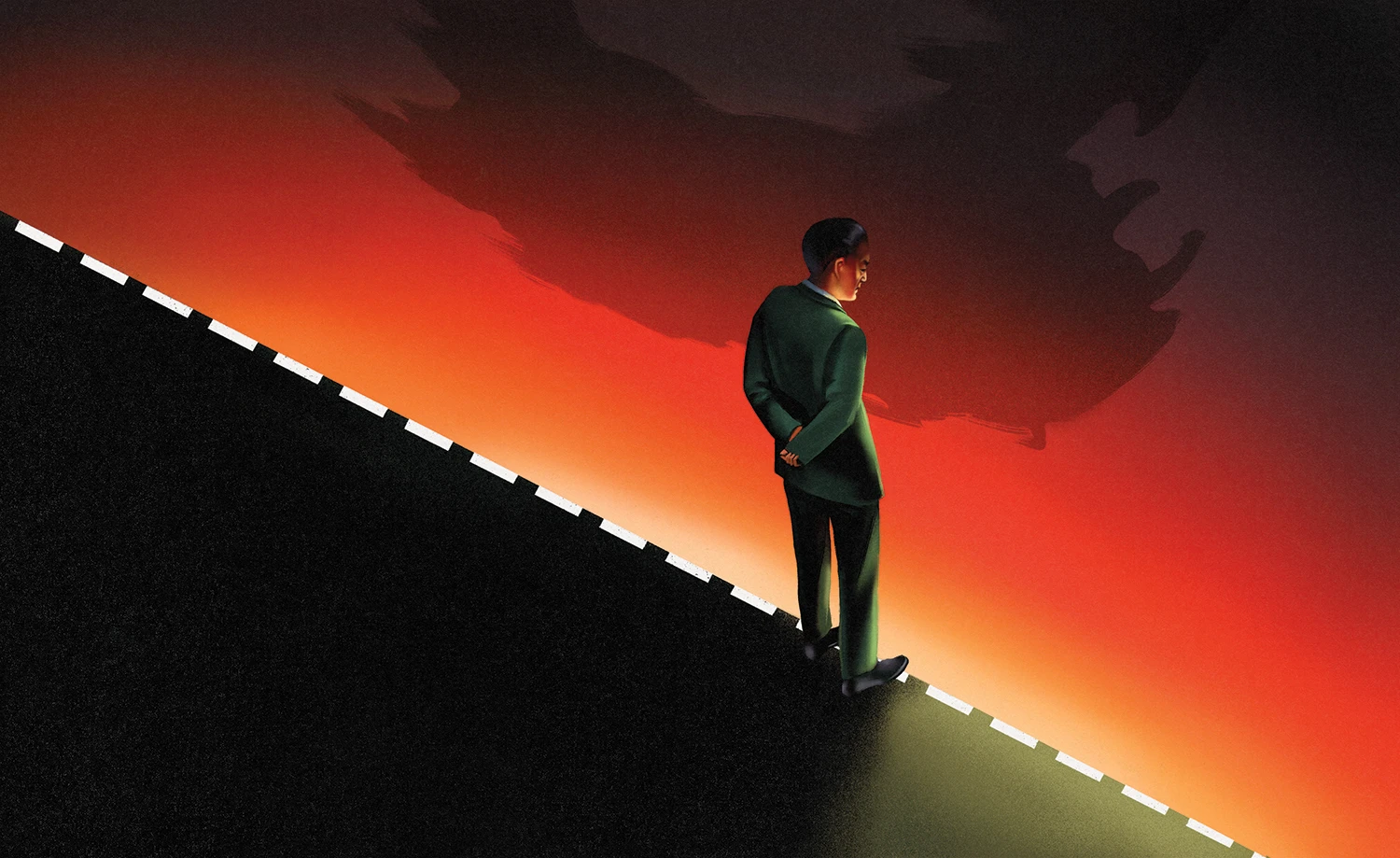It’s long ago been relegated to the dusty closet of the embarrassing past like a tatty old pair of Roller Strollers, but back in the 80s it was the height of fashion. I’m talking about the propensity of furrow-browed, mid-wit chin-strokers to declare that the future belonged to the Soviet Union. The sclerotic USA was in terminal decay, whereas the Soviet Union was a dynamic economic and military powerhouse on the rise. Within a decade, the Soviet Union would overtake the USA as the world’s leading economy.
As we all know, it manifestly did not. With almost comic timing, the Soviet Union collapsed in front of the astonished eyes of Economist scribes.
So, like a fashion-conscious teenager swapping out her grunge sweater for some Hot Topic goth gear, the empty-headed parrots of the chattering class applied some of that new-fangled Liquid Paper to their Soviet paeans, and typed in “China” instead. Now China was the rising power that was set to eclipse the American hegemon.
I don’t claim to be any great sage, but I have nursed several suspicions about such claims, from the start.
Firstly, giddy predictions about “the Rise of China” depend entirely on official CCP data. The same CCP who want us to be believe that Nothing Happened At The Wuhan Lab. The same CCP who still venerate history’s worst mass-murderer.
Secondly, China’s “rise” would continue unimpeded by such footling stuff as demographics.
Finally, the predictions apparently assumed that America would at the same time do nothing. Not only would its own economy simply sit idle and wait to be overtaken by China, successive American administrations would do nothing to head off Chinese expansionism.
To be sure, successive administrations have fared better or worse in tackling China (Obama was abysmal, allowing China to expand almost unchecked into the Pacific; Trump was excellent at putting America’s enemies back in their boxes;, despite his family’s dodgy financial dealings, Biden is doing fair-to-middling), but at least the threat of China is on the table.
Despite its problems and these distractions, the US is on the comeback. Most evident in Europe, the effectiveness of Washington’s diplomacy in Asia has surprised friends and adversaries alike. The Biden administration is building a formidable network of alliances and security partnerships that threatens Xi Jinping’s ambition to dominate the region and take Taiwan by force.
And as for China itself?
For all the effort the Chinese leader has put into making his country a near competitor to the US, the balance of power in Asia is starting to shift away from China as Biden’s policy of “constrainment” starts to bite.
China can’t match America’s unrivalled convening power. The US President has begun to unite a constellation of allies, friends and even reluctant fence-sitters who fear the consequences of a hegemonic China and know the US is the only country able to prevent it.
China’s biggest problem has always been its selling power. Everyone wants to be America, no-one wants to be China. The proof is in the population shifts: millions of people flood into America, legally and otherwise, every year. China’s net migration has been plunging into the negative since the 1980s and shows no sign of reversing.
Despite Xi Xinping splurging a trillion dollars on his Belt and Road Initiative, China’s soft power remains negligible. The BRI will almost certainly turn into a negative as the reality of its debt-entrapment comes home to roost. While China is able to buy off a few greedy banana republic panjandrums, everyone else is watching China’s aggressive expansionism with alarm.
Australia and Japan are the indispensable allies at the heart of an emerging latticework of US-aligned security partners.
Both countries are committed to profound defence transformations unequalled since the Pacific War […]
Driven by Beijing’s aggressive and uncompromising behaviour, Japan is rapidly emerging from its post-war pacifism. The Kishida government’s historic decision to double defence spending by 2027 will give Japan the world’s third largest defence budget after the US and China […]
Equally game changing is the breakthrough agreement with The Philippines to allow the US access to four additional military facilities. These will be crucial to the defence of Taiwan as well as The Philippines […]
And negotiations soon will begin on a defence treaty with Indonesia to strengthen military interoperability.
As a previous generation of aggressive authoritarian states learned the hard way, underestimating the US can be a fatal mistake.
The Nazis thought they had America’s number. Roosevelt, they were convinced, would leave Britain hanging in the wind. What else could one expect of a president controlled by “Jewish wire-pullers”? Imperial Japan likewise thought they would have a free hand.
Before Germany’s ill-advised invasion turned the Soviet Union from friend to foe in June 1941, the Axis powers were in a far stronger position than today’s China, producing more than half the world’s gross domestic product and fielding large, battle-tested militaries. Yet they still lost. America’s unleashed wealth, resources and productive capacities on the side of the Allies proved decisive.
The Australian
China is nowhere near so strong as the Axis powers in the 40s. China accounts for about 18% of global wealth. The US alone accounts for 25%; with its allies, it owns more than half the world’s wealth. Those allies constitute a roll-call of the world’s fastest-growing economies. China has no real allies: only clients like North Korea and Iran who are more a drain than anything else.
Worse, China is a drain on itself. Its demographic future is bleak: even official CCP data acknowledges that its population will likely halve by the end of the century. Whatever chance China had of becoming a global hegemon has slipped through Xi’s fingers.
It only remains to be seen if he and the rest of the CCP accept it.

